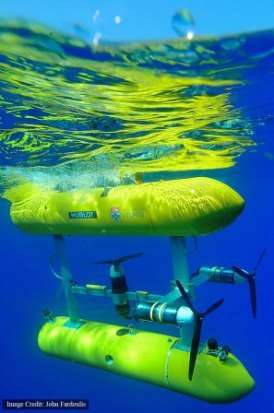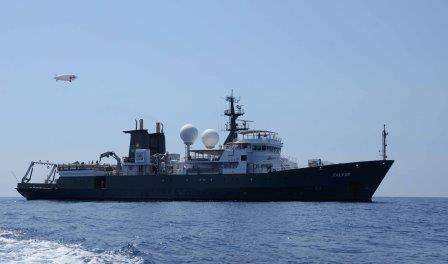Data gathering expedition using coordinated groups of underwater robotics

In a first of its kind study, an international research team onboard Schmidt Ocean Institute's research vessel Falkor will conduct a data gathering expedition using coordinated groups of underwater robotics.
The team, led byDr. Oscar Pizarro from the University of Sydney 's Australian Centre for Field Robotics, received support from the Schmidt Ocean Institute to visit Scott Reef, 400 kilometers north of Broome in the Timor Sea. The remote site will be used as a test site for experiments aimed at expanding the electronic view of the seafloor and overlying waters.
The team comprised of engineers and scientists from the University of Sydney, James Cook University, Woods Hole Oceanographic Institution, University of Rhode Island, and University of Michigan aim to expand and improve techniques for efficiently coordinating deployments of multiple exploratory vehicles and tools.
"We believe this is a big step in pushing oceanographic technology forward," said chief engineer, Dr. Pizarro. The work will bring engineers closer to being able to leave groups of robotic vehicles unattended for long stretches of time to accomplish tasks like detailed seafloor mapping and chemical analyses across wide areas. This could reduce both costs and the need for scientists to travel to these remote areas, while at the same time, improving ocean exploration by increasing observations.
Autonomous underwater vehicles (AUVs) capable of taking photos and collecting water column measurements at various depths will be used along with autonomous surface vehicles (ASVs) and gliders. These vehicles come in a variety of forms, including some that use solar power and other vehicles that rise and fall with wave action.

"The team 's ultimate vision is to be able to deploy complementary groups of vehicles to accomplish key tasks, that would allow a ship to move to another area for separate work,"says Dr Pizarro.
"The expedition will be in stark contrast to typical research cruises where opportunities for engineering experimentation and testing are rare."
Provided by University of Sydney




















